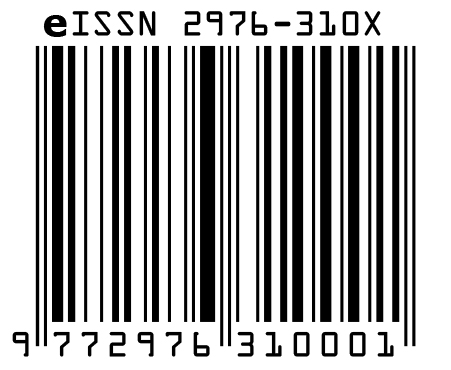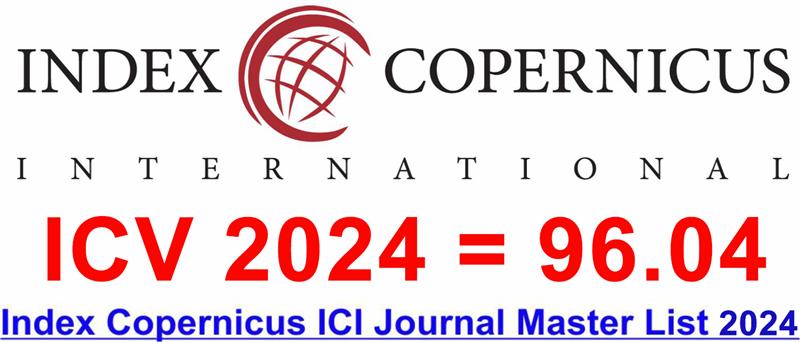The Role of Community in Managing Crisis of COVID-19 Pandemic: The Case of Jimma Zone, Southwest Ethiopia
DOI:
https://doi.org/10.60072/ijeissah.2024.v2i02.002Abstract
This study aimed to explore the roles of the community in managing the covid-19 crisis in the Jimma Zone, Southwest Ethiopia. To achieve this, we employed a qualitative phenomenological research design. This, in turn, helped us conduct in-depth and key informant interviews and FGDs. The study participants were community members of the towns, health workers/COVID-19 task forces, religious leaders, experts from government sectors and Non-government Organizations (NGOs), resourceful community members and workers of Jimma Emergency Operation Center, and staff of the Jimma University Institute of Health. By determining their size using the data saturation point method, we selected 17 participants. Two FGDs were conducted with six participants in each group. data were then analyzed thematically. We used data sources and method triangulations to enhance the credibility of the findings. The findings of this study revealed the covid-19 crisis has brought psychosocial, economic, and spiritual problems to the community. In particular, individuals with low incomes, sectors with serious human interactions, urban dwellers, and vulnerable groups suffered significantly during the pandemic. In response to the pandemic, the community employed various methods, both formal and informal. Challenges such as misconceptions, inadequate protocol implementation, and resource shortages hindered their efforts. Nevertheless, the community tackled these obstacles through two approaches: adopting WHO-recommended precautions and utilizing traditional social support systems. Consequently, collective endeavors are imperative from the community and stakeholders to promote awareness of COVID-19 preventive measures effectively.
Keywords:
COVID-19, Crisis, Managing, Community, Jimma, EthiopiaReferences
Abbas Zaher, W., Ahamed, F., Ganesan, S., Warren, K., & Koshy, A. (2021). COVID-19 crisis management: lessons from the United Arab Emirates leaders. Frontiers in public health, 9, 724494. https://doi.org/10.3389/fpubh.2021.724494
Aljaberi, M. A., Alareqe, N. A., Alsalahi, A., Qasem, M. A., Noman, S., Uzir, M. U. H., ... & Mohd Rani, M. D. (2022). A cross-sectional study on the impact of the COVID-19 pandemic on psychological outcomes: Multiple indicators and multiple causes modeling. PLoS One, 17(11), e0277368. https://doi.org/10.1371/journal.pone.0277368
Aljaberi, M. A., Al-Sharafi, M. A., Uzir, M. U. H., Sabah, A., Ali, A. M., Lee, K. H., ... & Lin, C. Y. (2023, August). Psychological toll of the COVID-19 pandemic: An in-depth exploration of anxiety, depression, and insomnia and the influence of quarantine measures on daily life. In Healthcare (Vol. 11, No. 17, p. 2418). MDPI. https://doi.org/10.3390/healthcare11172418
Aljaberi, M. A., Lee, K. H., Alareqe, N. A., Qasem, M. A., Alsalahi, A., Abdallah, A. M., ... & Lin, C. Y. (2022, September). Rasch modeling and multilevel confirmatory factor analysis for the usability of the impact of event Scale-Revised (IES-R) during the COVID-19 pandemic. In Healthcare (Vol. 10, No. 10, p. 1858). MDPI. https://doi.org/10.3390/healthcare10101858
Al-Tammemi, A. A. B., Barakat, M., Al Tamimi, D. A., Alhallaq, S. A., Al Hasan, D. M., Khasawneh, G. M., ... & Kolozsvári, L. R. (2021). Beliefs toward smoking and COVID-19, and the pandemic impact on smoking behavior and quit intention: findings from a community-based cross-sectional study in Jordan. Tobacco use insights, 14, 1179173X211053022. https://doi.org/10.1177/1179173X211053022
Barba, R., Rosado, C., Pardo-Moreno, J., & Rey-Biel, J. (2020). Managing people, roles, and resources during Covid-19 surge. NEJM Catalyst Innovations in Care Delivery, 1(3). https://doi.org/10.1056/CAT.20.0152
Crandall, W. R., Parnell, J. A., & Spillan, J. E. (2013). Crisis management: Leading in the new strategy landscape. Sage Publications.
El Abiddine, F. Z., Aljaberi, M. A., Gadelrab, H. F., Lin, C. Y., & Muhammed, A. (2022). Mediated effects of insomnia in the association between problematic social media use and subjective well-being among university students during COVID-19 pandemic. Sleep Epidemiology, 2, 100030. https://doi.org/10.1016/j.sleepe.2022.100030
Fares, Z. E. A., Ala'a, B., Gadelrab, H. F., Lin, C. Y., Aljaberi, M. A., Alhuwailah, A., & Roubi, M. L. (2021). Arabic COVID-19 Psychological Distress Scale: development and initial validation. BMJ open, 11(6), e046006. https://doi.org/10.1136/bmjopen-2020-046006
Gilmore, B., Ndejjo, R., Tchetchia, A., de Claro, V., Mago, E., Lopes, C., & Bhattacharyya, S. (2020). Community engagement for COVID-19 prevention and control: a rapid evidence synthesis. BMJ global health, 5(10), e003188. https://doi.org/10.1136/bmjgh-2020-003188
Güner, H. R., Hasanoğlu, İ., & Aktaş, F. (2020). COVID-19: Prevention and control measures in community. Turkish Journal of medical sciences, 50(9), 571-577. https://doi.org/10.3906/sag-2004-146
Hamouche, S. (2021). Human resource management and the COVID-19 crisis: Implications, challenges, opportunities, and future organizational directions. Journal of Management & Organization, 29(5), 799-814. DOI: https://doi.org/10.1017/jmo.2021.15
Kawulich, B. (2012). Collecting data through observation. Doing social research: A global context, 6(12), 150-160.
Kivunja, C., & Kuyini, A. B. (2017). Understanding and applying research paradigms in educational contexts. International Journal of higher education, 6(5), 26-41.
Larkin, M., Flowers, P., & Smith, J. A. (2021). Interpretative phenomenological analysis: Theory, method and research. Interpretative phenomenological analysis, 1-100.
Mohammed, L. A., Aljaberi, M. A., Amidi, A., Abdulsalam, R., Lin, C. Y., Hamat, R. A., & Abdallah, A. M. (2022). Exploring factors affecting graduate students’ satisfaction toward E-learning in the era of the COVID-19 crisis. European Journal of Investigation in Health, Psychology and Education, 12(8), 1121-1142. https://doi.org/10.3390/ejihpe12080079
Rehman, A. A., & Alharthi, K. (2016). An introduction to research paradigms. International journal of educational investigations, 3(8), 51-59.
Somekh, B., & Lewin, C. (Eds.). (2005). Research methods in the social sciences. Sage.
Wario, W. A. K. O., & GEBRU, A. (2022). Growing up under corona virus disease 2019 (COVID-19) pandemic and the impacts on children’s socialization in Jimma City, Southwest Ethiopia. African Journal of Social Work, 12(5), 214-222. https://www.ajol.info/index.php/ajsw/article/view/255197
























